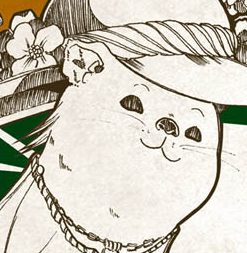
An Introduction to Old Legends and Myths [Article 3.2]
Legend has it that the first animals domesticated were squids.
More than tens of millenniums ago, an early man sunk down into the deep sea and was saved by a colossal squid. Instead of moving inland, humans started expanding seawards with the help of domesticated ocean lifeforms and sea farms.
They have built massive oxygen networks to inhabit the sea instead, building powerful machines that mainly run on hydraulic power.
Over the years, humans adapted with the development of sea-form traits such as membranes and gills. While they can still go on land, they can only stay for short periods of time before needing to retreat into the waters, due to their skin’s sensitivity to the harsh sun.
Images on today’s lifestyle [Article 7.5a]

Common Pets
The Big Spill: A Dark Truth [Article 8.2a]
In recent 1880s, the eruption of new cities underwater is causing a great revolution. The population boom and careless handling of factories are causing a great deal of pollution, brought to attention with The Big Spill disaster in 1886.
The Big Spill disaster, an underwater ink factory explosion, caused a chain reaction of explosions and flooding in the North Atlantic Pipework. The disaster wiped out half the population living in the North Atlantic Sector and has forced the remaining affluent residents of the Pipework to relocate themselves to other sectors due to the compromised structural integrity of the remaining South Atlantic Pipework.
“The ink stopped leaking from the factories, but the aftereffects of explosion were horrendous. It’s been months and there are still many missing bodies,” says Ben Bean, 30, rescue worker from Corel Rescue Corps (CRC).
The tremors from the explosion are also felt in the South Pacific Pipeworks.
The Global Pipeworks Conference 1887 will take place on Feb. 15 to discuss the relocation of South Atlantic refugees and the reduction of ink-levels in the sea.






